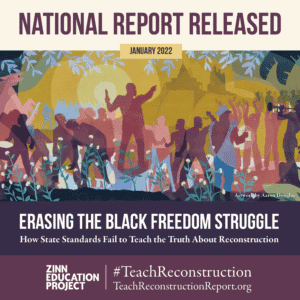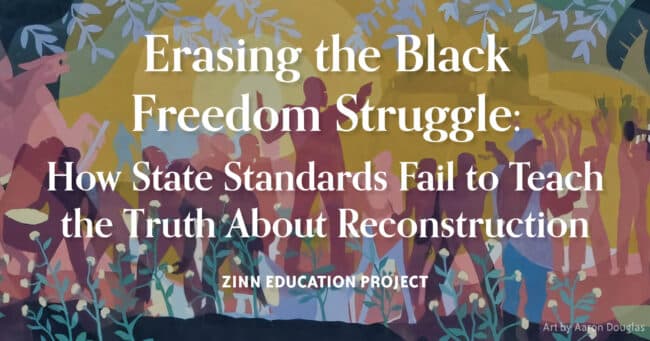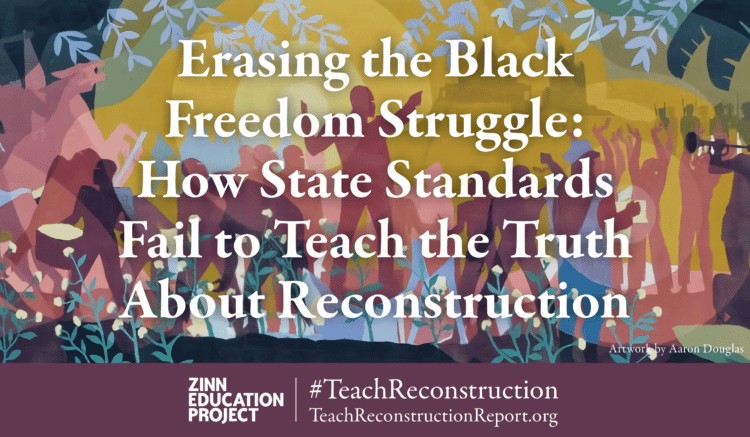By Ana Rosado, Gideon Cohn-Postar, and Mimi Eisen
In 2016, the National Park Service described Reconstruction as “one of the most complicated, poorly understood, and significant periods in American history.”
Even as ongoing crises with obvious links to the Reconstruction era continue to reinforce its significance today, most people living in the United States know shockingly little about the policies, people, conflicts, and ideas that shaped Reconstruction and its aftermath.
Reconstruction was a moment of profound hope and devastating loss. Four million formerly enslaved people gained freedom and made strong claims on political, economic, and social equality. However, this “new birth of freedom” for African Americans was met with a white supremacist backlash. With bullets, nooses, laws, and threats, politicians and vigilantes worked to overturn the radical promise of Reconstruction and end multiracial democracy in the South for a century.
 Historical connections to Reconstruction surround us today: the Movement for Black Lives, rising white supremacist violence, virulent voter suppression, multiracial movements to address policing and labor, political efforts to ban accurate history from classrooms, and racial disparities in COVID-19 mortality rates. The attack on the U.S. Capitol on Jan. 6, 2021, symbolized by a Confederate flag waving in the Capitol, attempted to overturn the 2020 election results; in the 1870s, white supremacist terrorists throughout the South successfully defeated democracy and equality for more than a generation.
Historical connections to Reconstruction surround us today: the Movement for Black Lives, rising white supremacist violence, virulent voter suppression, multiracial movements to address policing and labor, political efforts to ban accurate history from classrooms, and racial disparities in COVID-19 mortality rates. The attack on the U.S. Capitol on Jan. 6, 2021, symbolized by a Confederate flag waving in the Capitol, attempted to overturn the 2020 election results; in the 1870s, white supremacist terrorists throughout the South successfully defeated democracy and equality for more than a generation.
As these recent events have reinforced Reconstruction’s relevance, they have also heightened the need to interrogate why it remains so poorly understood. This report represents a comprehensive effort by the Zinn Education Project to understand Reconstruction’s place in state social studies standards across the United States, examine the nature and extent of the barriers to teaching effective Reconstruction history, and make focused recommendations for improvement.









Twitter
Google plus
LinkedIn